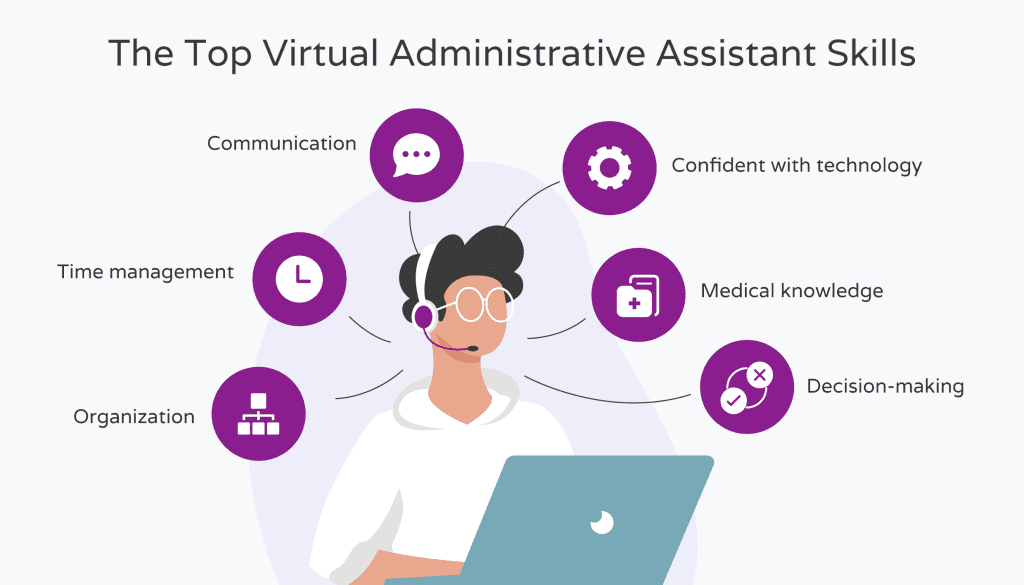The role of an Administrative Virtual Assistant (AVA) has become increasingly essential in today’s business landscape. This article examines the functions, qualifications, advantages, and practical approaches to hiring an administrative virtual assistant, particularly in the context of the growing trend of remote work.

Understanding the Role of an Administrative Virtual Assistant
An Administrative Virtual Assistant is an independent contractor who provides administrative support services remotely. Unlike traditional administrative assistants, VAs leverage technology to communicate with clients, allowing businesses to outsource tasks without the overhead costs associated with full-time employees.
Primary Functions of an Administrative Virtual Assistant
The responsibilities of an AVA can vary widely depending on the client’s needs. Key functions include:
- Calendar Management: Effectively organizing and managing schedules, including setting reminders for meetings, appointments, and other events.
- Email Management: Handling incoming and outgoing emails to prevent miscommunication and disorganization.
- Data Entry and Management: Inputting and managing information across various systems efficiently to ensure data accuracy and accessibility.
- Travel Arrangements: Planning and organizing travel itineraries, including bookings for flights, accommodations, and transportation.
- Social Media Management: Overseeing social media accounts by creating engaging content and interacting with audiences to enhance brand presence.
- Research and Reporting: Conducting research on various topics and preparing reports to aid decision-making.
- Customer Support: Managing customer inquiries and maintaining relationships to enhance customer satisfaction.
- Also explained well : https://www.investopedia.com/terms/v/virtual-assistant.asp:
Essential Skills for an Administrative Virtual Assistant
To excel as an AVA, certain skills are critical:
- Organizational Skills: Ability to manage multiple tasks simultaneously while maintaining organization.
- Communication Skills: Strong written and verbal communication skills to interact effectively with clients and team members.
- Technical Proficiency: Familiarity with various software applications, including office tools and project management platforms.
- Attention to Detail: Precision in data entry and reporting is essential to maintain accuracy.
- Time Management: Capability to prioritize tasks and meet deadlines in a remote work environment.
- Problem-Solving Skills: Strong analytical skills to address challenges and provide effective solutions.
Benefits of Hiring an Administrative Virtual Assistant
- Cost-Effectiveness: Hiring an AVA is often less expensive than employing a full-time staff member, as it eliminates costs related to salary, benefits, and office space.
- Flexibility: Clients can hire AVAs for specific projects or hours, allowing for agile resource allocation.
- Increased Productivity: Delegating administrative tasks enables business owners to focus on core activities, boosting overall productivity.
- Access to Specialized Skills: Many AVAs bring expertise in areas such as social media management and bookkeeping, contributing to business growth.
- Scalability: As business needs evolve, it is easy to adjust administrative support by engaging more AVAs or increasing hours.
Effective Strategies for Hiring an Administrative Virtual Assistant
- Identify Requirements for administrative Virtual assistant: Clearly outline the tasks and responsibilities needed to avoid over hiring or misalignment.
- Set a Budget: Allocate a budget for administrative support based on the expected level of experience and specialization.
- Utilize Online Platforms: Post job listings on websites like Upwork, Freelancer, or Fiverr to find qualified candidates.
- Assess Candidates: Evaluate potential hires based on their experience, skills, and client feedback. Conduct interviews to determine compatibility.
- Provide Clear Instructions: After hiring, communicate detailed task expectations to ensure effective collaboration.
- Implement Project Management Tools: Use tools like Trello, Asana, or Monday.com for task management and progress tracking.
Frequently Asked Questions about Administrative Virtual Assistants
1. What qualifications are needed to be an Administrative Virtual Assistant?
Formal education is not mandatory, but experience in administrative roles and proficiency in office software can enhance employability. Some may pursue relevant courses to improve their skills.
2. What is the average rate for Administrative Virtual Assistants?
AVAs typically charge between $15 and $50 per hour, depending on their experience and expertise.
3. Can Administrative Virtual Assistants work part-time?
Yes, many AVAs work part-time, allowing them to manage multiple clients effectively.
4. What software tools do Administrative Virtual Assistants commonly use?
Common tools include project management applications like Trello, communication platforms like Slack and Zoom, and productivity software like Microsoft Office and Google Workspace.
5. How can I foster a successful partnership with my AVA?
Effective communication, well-defined tasks, and regular check-ins are crucial for a successful working relationship.
Conclusion
In summary, Administrative Virtual Assistants are vital professionals in today’s business environment. By understanding their roles, necessary skills, and hiring strategies, businesses can effectively utilize AVAs to enhance productivity and streamline operations. When approached correctly, hiring an administrative virtual assistant can be a strategic move that significantly boosts business efficiency and profitability.

